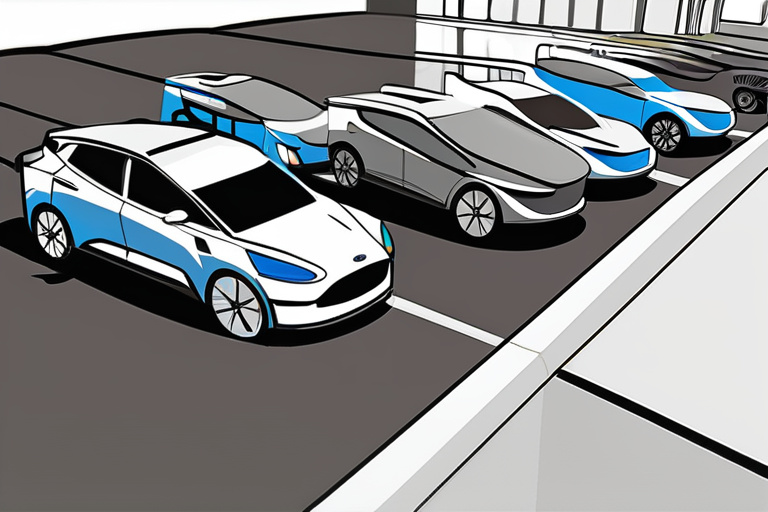Ford CEO Warns of Industry Contraction as EV Tax Credit Expires
The expiration of the federal electric vehicle (EV) tax credit at midnight is expected to have a significant impact on the industry, with Ford Motor Company's CEO, Jim Farley, warning that it could cut the market in half. The 17-year policy pillar, which provided a $7,500 consumer incentive, has been a crucial factor in driving EV adoption and closing the price gap with gasoline vehicles.
According to market analysts, the loss of this tax credit will lead to softer demand for electric vehicles, resulting in leaner production levels and a strategic pivot by legacy automakers towards hybrids and internal combustion engines (ICE). This shift is likely to have far-reaching consequences for the industry, including job losses and supply chain disruptions.
Ford's Farley described the expiration of the EV tax credit as a "game-changer" that will significantly impact the market. "It's way smaller than we thought," he said, highlighting the need for automakers to adapt quickly to changing market conditions.
The EV tax credit has been a key factor in driving adoption, with over 1 million vehicles sold in the US alone since its introduction in 2006. The policy has also played a crucial role in reducing greenhouse gas emissions and promoting sustainable transportation options.
However, the expiration of the tax credit is not without precedent. In 2019, Tesla and General Motors were among the first to reach the $80,000 price threshold, after which they became ineligible for the incentive. Since then, other manufacturers have followed suit, with some opting to focus on more profitable hybrid models.
The impact of the EV tax credit's expiration will be felt across the industry, with stakeholders including automakers, suppliers, and consumers all affected. As the market adjusts to this new reality, companies are likely to reassess their investment strategies and product offerings.
In a statement, Ford said it would continue to invest in electric vehicles, but at a slower pace than previously planned. The company has committed to launching 16 new EV models by 2025, with a focus on more affordable options for mainstream consumers.
As the industry navigates this significant shift, one thing is clear: the expiration of the EV tax credit marks a turning point in the evolution of the automotive sector. With market analysts predicting a contraction of up to 50% in EV sales, companies will need to adapt quickly to changing consumer preferences and regulatory environments.
Market Implications
Soft demand for electric vehicles expected to lead to leaner production levels
Legacy automakers likely to pivot towards hybrids and internal combustion engines (ICE)
Industry contraction predicted at up to 50%
Job losses and supply chain disruptions anticipated
Stakeholder Perspectives
Ford CEO Jim Farley: "It's way smaller than we thought"
Tesla CEO Elon Musk: "We will continue to innovate and lead the market in electric vehicles"
General Motors CEO Mary Barra: "We are committed to our EV strategy, but will need to adjust our plans"
Future Outlook
As the industry adjusts to the expiration of the EV tax credit, companies will need to reassess their investment strategies and product offerings. With a focus on more affordable options for mainstream consumers, automakers will need to balance profitability with sustainability goals.
In the short term, the market is likely to experience a contraction in EV sales, but long-term prospects remain positive. As technology continues to improve and consumer preferences shift towards sustainable transportation options, companies that adapt quickly will be well-positioned to capitalize on emerging trends.
As one industry analyst noted, "The expiration of the EV tax credit marks a turning point for the automotive sector. Companies that can navigate this change and adapt to changing market conditions will emerge stronger in the long run."
*Financial data compiled from Fortune reporting.*


 Hoppi
Hoppi

 Hoppi
Hoppi

 Hoppi
Hoppi

 Hoppi
Hoppi

 Hoppi
Hoppi

 Hoppi
Hoppi










